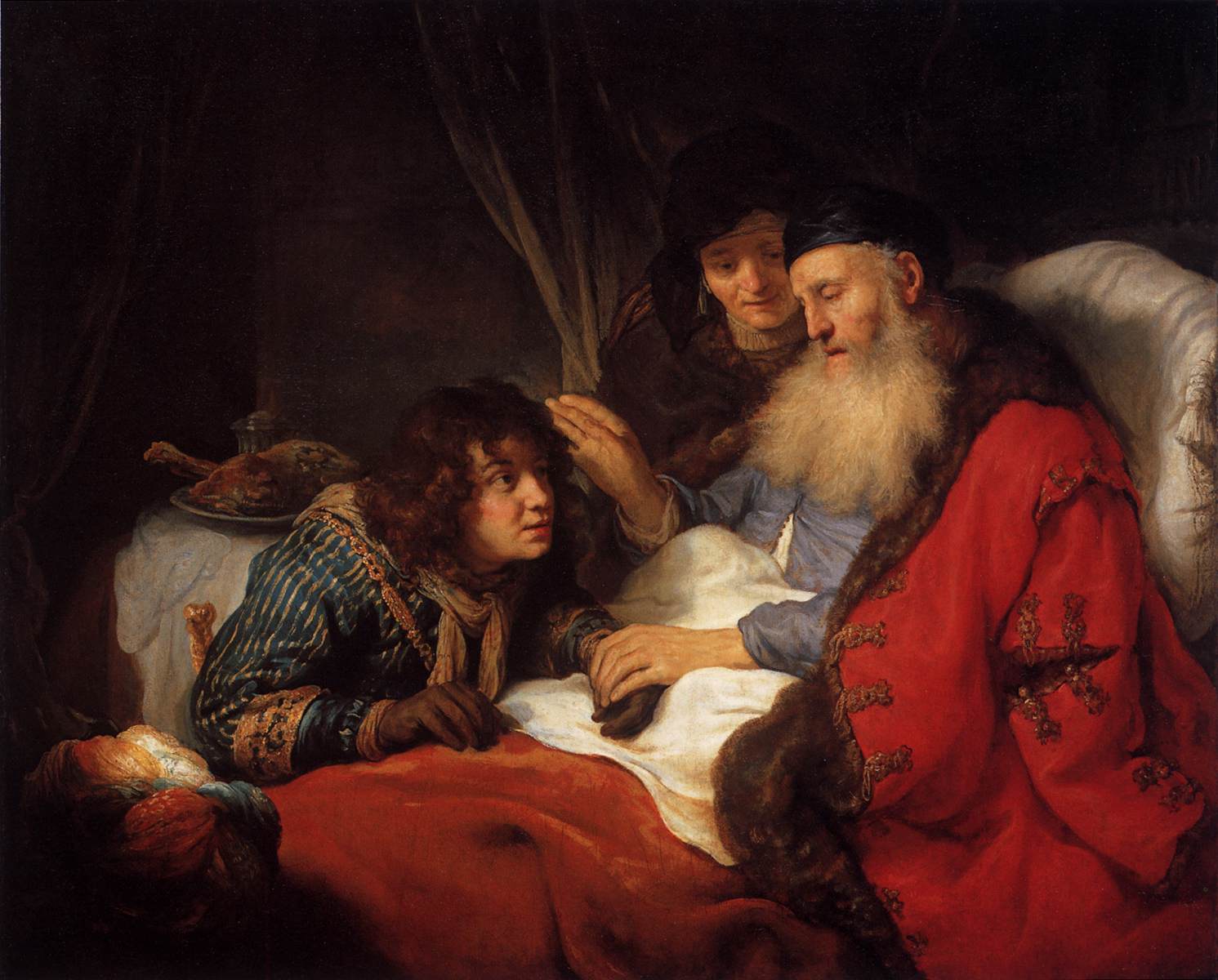Description
The painting "Isaac Blessing Jacob" by Govert Teunisz Flinck is a masterpiece of Dutch Baroque art. Flinck, a student of Rembrandt, shows in this work his ability to create a dramatic and emotional composition.
The painting depicts the moment when Isaac, the biblical patriarch, blesses his son Jacob. Isaac, already old and blind, is sitting in a chair while Jacob kneels before him to receive the blessing. The scene is full of tension and emotion, as Jacob has tricked his father in order to receive the blessing that was meant for his brother Esau.
The composition of the painting is impressive. Flinck uses the chiaroscuro technique to create dramatic lighting that highlights the figure of Isaac and his blessing gesture. Jacob's figure, on the other hand, is in shadow, which emphasizes his deception. The use of space is also effective, as the figure of Isaac is in the center of the painting, while Jacob kneels in the background.
The paint color is rich and vibrant. Flinck uses a palette of warm colors, including red, yellow, and gold, to create a feeling of richness and opulence. The details in the clothing and accessories are also impressive, such as the gold embroidery on Isaac's cloak and the texture of the lambskin Jacob wears on his arm.
The history of the painting is interesting. It was commissioned by the city of Amsterdam in 1638 to decorate the municipal council room. The painting was a great success and became one of Flinck's most famous works. However, in 1654, the painting was stolen by the French during the Franco-Dutch War and taken to France. It was returned to Amsterdam in 1815 and is now in the Rijksmuseum.
In short, "Isaac Blessing Jacob" is an impressive work that shows Flinck's skill as a baroque artist. His dramatic composition, use of chiaroscuro, and rich color palette create a sense of tension and emotion in the depicted biblical scene. The history of the painting is also interesting, as it has been stolen and returned over the centuries.

